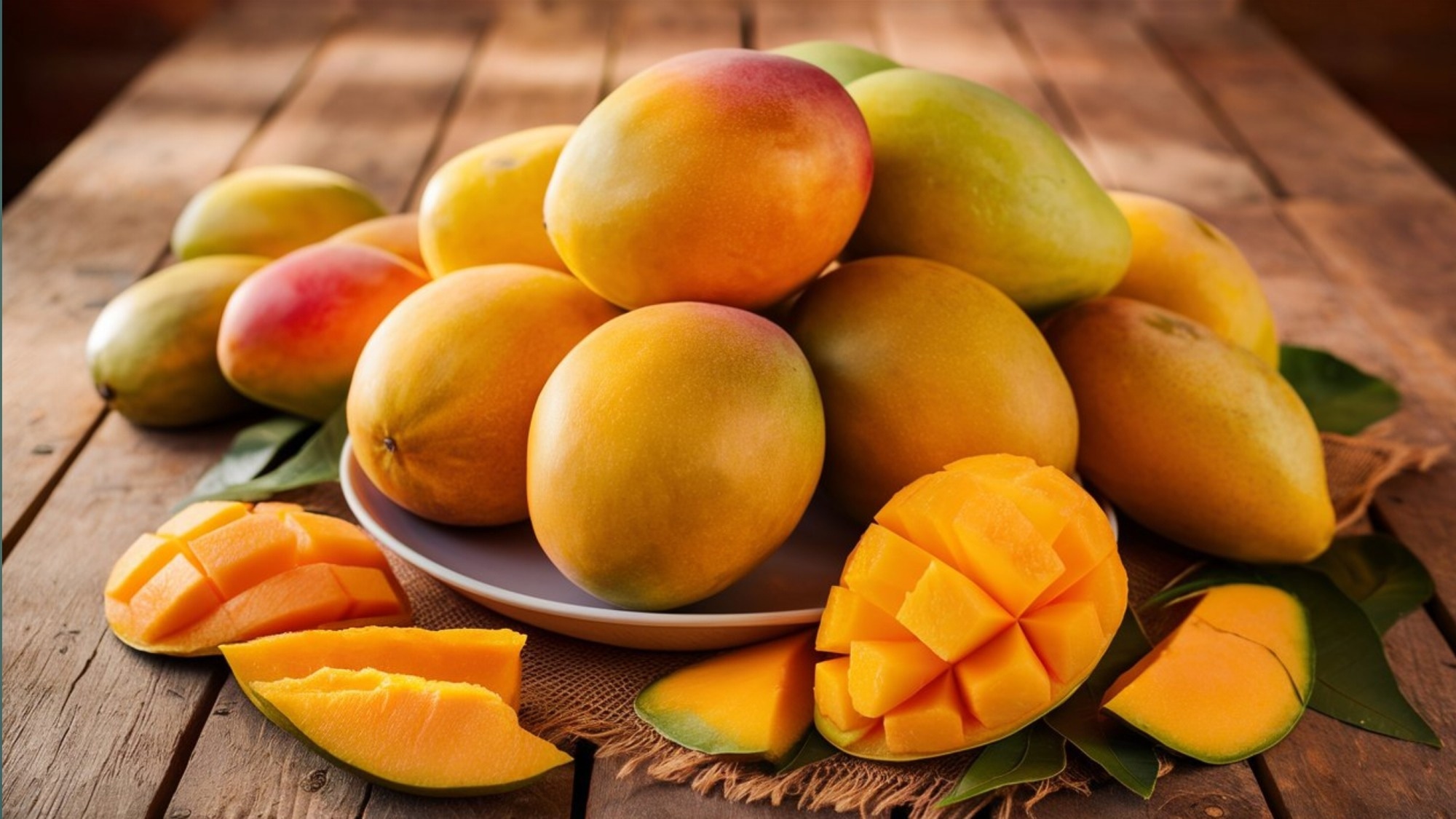A 24-week clinical trial suggests that replacing a processed snack with a daily fresh mango may improve blood sugar control and body composition in adults at risk of diabetes, highlighting the power of whole fruits over refined foods.
 Study: Daily Mango Intake Improves Glycemic and Body Composition Outcomes in Adults with Prediabetes: A Randomized Controlled Study. Image credit: Abubakkar14/Shutterstock.com
Study: Daily Mango Intake Improves Glycemic and Body Composition Outcomes in Adults with Prediabetes: A Randomized Controlled Study. Image credit: Abubakkar14/Shutterstock.com
Prediabetes is when the body fails to maintain normal blood sugar levels. The result is elevated blood sugar levels, though not to diabetes levels. A sizable proportion of people with prediabetes develop type 2 diabetes (T2D) and cardiovascular disease over time. A recent study in Foods explored the potential benefits of consuming a fresh mango daily in this group.
Introduction
Over 98 million adult Americans struggle with high blood sugar, both prediabetes and T2D. Prediabetes may impact 40% of Americans by the end of the current decade, making it essential to identify and manage this stage to prevent the onset of T2D.
Dietary changes are key to such efforts, especially consuming fresh fruit, vegetables, and foods with high bioactive composition. These regulate blood sugar levels and improve metabolic health. Mangoes contain carotenoids, ascorbic acid, plant polyphenols, quercetin, and dietary fiber.
Freeze-dried mango supplementation in mice produced positive effects, reducing body fat mass and decreasing blood glucose and lipid levels, but human studies have provided mixed results. The current long-term randomized controlled study aimed to directly compare the effects of eating mango vs a refined snack of equal caloric content in people with prediabetes.
The study included 23 participants, 11 of whom were in the treatment group. These individuals consumed ~300 g of mango every day for 24 weeks, while the control group of 12 individuals consumed a granola bar every day for the same period.
Study findings
At the start, the treatment group's mean fasting blood glucose level was 113 mg/dL, compared to 116.5 mg/dL in the control group. Post-intervention, it increased in the control group while decreasing in the treatment group. At the end of the study, fasting glucose levels were about 18 mg/dL lower in the mango group compared to the control group (a between-group difference), with the mango group showing a modest drop of ~6 mg/dL from baseline.
Glycated hemoglobin (HbA1c) levels were comparable at baseline, a marker of long-term blood glucose levels. It increased slightly in the control group post-intervention but not in the treatment group.
The mean HbA1c went up in the control group, but body fat did not change. This was coupled with increased fat-free mass in the treatment group, though total body water did not change. This suggests that fluid retention did not explain this increase.
The treatment group remained sensitive to insulin after the intervention, as shown by the Quantitative Insulin Sensitivity Check Index (QUICKI) test. Insulin resistance tended to drop, and body fat showed a borderline decrease (p = 0.05) in this group.
At week 25, the mean body mass index (BMI) remained unchanged in the treatment group, while the ratio of waist to hip circumference decreased significantly. In the control group, BMI rose slightly (28.6 to 29.0) but not significantly, while the waist–hip ratio increased significantly.
These results corroborate those of earlier studies, though the present study's 24-week duration provides evidence suggestive of both early and long-term glycemic benefit from mango consumption. Together with preclinical studies suggesting a fat-lowering effect comparable to that of fenofibrate (which reduces triglyceride levels in the blood) and rosiglitazone (a glucose-lowering agent that promotes insulin sensitivity), this underlines the potential of mango as a functional food. However, these drug comparisons come from mouse models, not human trials.
Consuming whole fruit provides a fiber matrix that more than offsets the risk posed by its sugar content. This suggests the benefit of switching out refined foods for whole fruits on metabolic health.
Along with lowering blood glucose, mango consumption may improve body composition, reducing the risk of diabetes. The preservation of the waist-hip ratio, unlike the increase seen in the control group, is a clinically relevant finding since a high body fat percentage, increased waist-hip ratio, and more visceral fat all increase the odds of diabetes.
Conclusions
“The daily consumption of mango for 24 weeks improved the glycemic control, insulin sensitivity, and body composition in adults with prediabetes, which supports the potential of mango as a practical dietary intervention for metabolic health.”
The authors also cautioned that their trial was small, had baseline differences between groups, and was powered only for fasting glucose, so the results should be interpreted as exploratory rather than definitive.
These findings may be true of many other fruits and plant foods, indicating the importance of the food's physical and chemical structure. In this case, the fruit matrix guides food selection rather than just the sugar content.
Download your PDF copy now!